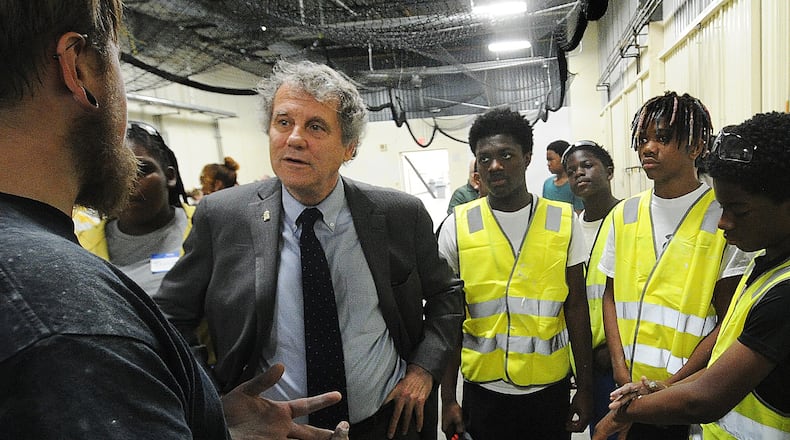Brown penned and sent his letter not long after Dayton’s Environmental Advisory Board approved sending letters to Brown and other state elected leaders requesting their help.
The advisory board wants the U.S. Environmental Protection Agency (EPA) to take emergency action to try to force Wright-Patterson Air Force Base to clean up PFAS on and off base property.
Brown’s letter asks the Department of Defense and the Air Force to enter into a cooperative agreement with the city of Dayton and Wright-Patterson Air Force Base.
Four years ago, Ohio Gov. Mike DeWine asked the Department of Defense to enter into a cooperative agreement with the Ohio EPA and Dayton to take “expedient and preventative” measures to protect the aquifer from PFAS pollution.
Brown’s letter also asks the Air Force and DoD to:
- Take immediate action to address PFAS contamination flowing from Wright-Patt into the city’s well fields.
- Initiate a time critical removal action in accordance with the Comprehensive Environmental Response, Compensation and Liability Act (CERCLA).
- Provide the resources necessary to reduce the amount of PFAS flowing into Dayton’s well fields.
Brown’s letter says the DoD has failed to enter into an agreement even though it is required to under the Fiscal Year 2020 National Defense Authorization Act.
Brown said he’s also concerned that the DoD appears to be prioritizing addressing PFAS contamination in private drinking water wells instead of public water systems.
“The Great Miami Buried Valley aquifer is the largest sole-source aquifer impacted by military contamination, serving more than 2.3 million people — approximately 400,000 of whom are served by the city of Dayton alone,” his letter states.
Wright-Patt base officials recently told the Dayton Daily News that the Air Force is taking aggressive action to determine if mission activities have impacted drinking water with PFAS.
Officials said the Air Force will respond appropriately and prioritizes response actions where PFAS levels that may be associated with service activities are the highest.
“We live in the communities we serve, and we share community concerns about the possible impacts our firefighting operations may have on human drinking water sources,” officials said. “The Department of the Air Force is working with the Dayton community and regulators to ensure PFAS that may be associated with our mission activities does not pose a risk to drinking water supplies.”
Brown faces Republican challenger Bernie Moreno in his reelection race next month. This newspaper reached out to Moreno’s campaign for comment but did not get a response.
About the Author


